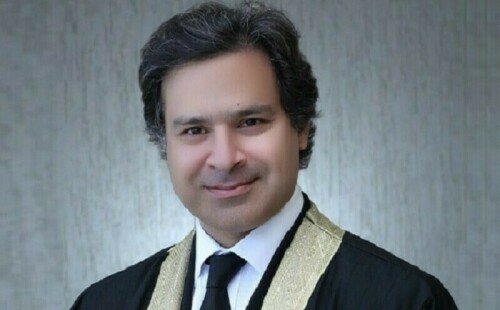FOR over six decades the country’s Northern Areas, commonly known as Gilgit-Baltistan, have been given step-motherly treatment by successive governments. So even if the ‘constitutional package’ unveiled by President Gen Pervez Musharraf in Gilgit on Tuesday falls short of fulfilling some of the fundamental demands of the two million inhabitants of the region, it is still being welcomed by many as perhaps a necessary first step in the right direction.
The government has incorporated 52 amendments proposed by the representatives of the area into the Legal Framework Order — a controversial, if not draconian, law through which Islamabad administers the strategic area.
The amendments have enhanced the administrative and financial powers of the Northern Areas Legislative Council, elevating it to the status of an assembly — at least in name, if not in substance.
Under the amended LFO, most of the powers now being exercised by the Ministry of Kashmir and Northern Areas will be transferred to the Northern Areas Legislative Assembly (NALA). The assembly will be able to legislate, prepare the budget and approve development plans.
The post of the Deputy Chief Executive of Northern Areas has been upgraded and redesignated as “chief executive”. The incumbent shall exercise administrative and financial authority.
The Minister of Kashmir Affairs and Northern Areas, who by virtue of his portfolio is currently the chief executive, will become “chairman” of the Northern Areas.
The Legislative Assembly will be empowered to move ‘no-confidence motion’ against the chief executive, speaker and the deputy speaker of the Assembly.
The budgetary allocations have now been raised to Rs7.5 billion -- with a single entry allocation from the federal government for the territory. The all powerful chief secretary of Northern Areas will act as the Principal Accounts Officer.
A commission will be set up to resolve the boundary dispute between the NWFP and the Northern Areas -- a major hurdle in the execution of the Diamer-Bhasha dam scheme.
It is true that the chief executive of the Northern Areas will now be elected from Gilgit-Baltistan and his six advisers will also enjoy the status of provincial ministers. However, many observers have dismissed the president’s announcement as cosmetic as it leaves unresolved the fundamental question about the constitutional status of the region.
It is silent on the need for an independent judiciary and the right of adult franchise.
Many observers say the amended LFO does not guarantee democratic rights that the people had been agitating for since achieving freedom from Dogra rule on Nov 2, 1948, and accession to Pakistan.
It is extremely unfortunate for the people of the Northern Areas that their fate and freedom have remained tied to the resolution of the Kashmir dispute.
Even after the implementation of the reforms package, it seems that unless the “core issue” is settled, real powers will remain with Islamabad. One should not expect any real change in the status or rights of the people.
For decades Islamabad’s bureaucracy has been treating the region as a virtual colony by denying its people internal autonomy or provincial status, or for that matter representation in the Azad Kashmir Legislative Assembly.
For all these years the local political parties have been clamouring for representation in the parliament of Pakistan. Nationalist groups argue that the issue of voluntary accession to Pakistan in Nov 1948 should not be confused with the Kashmir conflict.
The Kashmir issue, it seems, may linger for many more years, largely due to Indian stubbornness. But the question is for how long the future of the people of Gilgit-Baltistan will be kept hostage to the dispute.
Observers believe if the government’s intentions are “genuine”, it could take advantage of the Supreme Court’s 1998 verdict asking the government to ensure all fundamental democratic rights to the people of
Gilgit-Baltistan. The verdict had envisaged, among other things, an independent judicial system and delinking Gilgit-Baltistan from the Kashmir tussle.
But dilly-dallying on the part of Islamabad has brought matters to a stage where any constitutional measure would be too little too late, especially in the wake of India’s latest steps on the Siachen issue and the process of India-Pakistan rapprochement.
Although the ‘constitutional package’ may well be a step forward, many believe Islamabad still has a long way to go in fulfilling the aspirations of the people of Northern Areas by giving them the same rights that the Constitution guarantees to the rest of the country.














































Dear visitor, the comments section is undergoing an overhaul and will return soon.